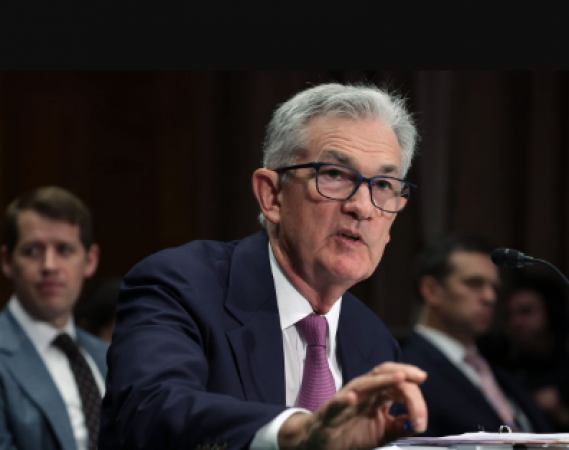
New Delhi: In an unprecedented move, the Federal Reserve has raised interest rates by 75 basis points, the most substantial increase since 1994. The decision comes as a response to the escalating inflation rates, which have reached a 40-year high. This article analyzes the Fed's actions, their implications on the economy, and how individuals may be affected.
The Fed's Bold Move
In a unanimous decision, the Federal Reserve raised rates for the fourth consecutive time since March, setting the target range for the federal funds rate at 3.75% to 4%. This aggressive stance reflects the central bank's determination to combat soaring inflation and return it to its 2% objective.
Also Read: Understanding the Complex Impacts of International Sanctions on Economies
A Surprise to Economists
The 75 basis point increase was surprising to many economists who had anticipated a more moderate 50 basis point hike. The move highlights the growing concern about inflation, which has now surged to 8.6%, reaching levels not seen since 1981.
Fed's Forward Guidance
In its statement, the Federal Reserve emphasized its strong commitment to bring inflation under control. The central bank further indicated its intention to continue raising rates at a rapid pace in the coming months, signifying a proactive approach to address the inflationary pressures.
Potential Impact on the Economy
The decision to raise interest rates is expected to have a significant impact on the economy. Higher rates will lead to increased borrowing costs for consumers and businesses alike. This could potentially slow down economic growth as borrowing becomes more expensive.
Also Read: BlackRock to Collab with Jio for Further Speculation in India
Balancing Risks and Benefits
While higher interest rates pose risks to economic growth, the Federal Reserve believes that the benefits of curbing inflation outweigh the potential drawbacks. By taking a hawkish stance, the central bank aims to keep inflation in check, which is crucial for maintaining stable economic conditions.
Market Reactions and Public Sentiment
The Fed's decision is likely to elicit mixed reactions from economists and market participants. Some economists support the move as necessary to tame inflationary pressures, while others express concerns about the potential for a recession triggered by higher rates. The market's response to this unprecedented rate hike remains uncertain, and investors will closely monitor how it unfolds.
Impact on Individuals
Individuals with variable-rate loans, such as credit card debt or home equity lines of credit, can expect higher interest payments following the rate hike. Locking in fixed-rate loans may be a prudent move for those considering borrowing money in the near future, as rates are expected to continue rising.
Inflationary Pressures on Consumers
The increase in interest rates may lead to higher prices for goods and services. Businesses may pass on the higher borrowing costs to consumers, resulting in increased prices at grocery stores, gas stations, and other retail outlets.
The Federal Reserve's historic 75 basis point rate hike reflects the central bank's strong commitment to combat surging inflation. While the move is intended to stabilize the economy in the long run, it is also likely to have immediate consequences for individuals and businesses.
Also Read: Mercedes-Benz to up thrust its production as losing by the other side
As the situation evolves, the Fed's approach will continue to be scrutinized, and market reactions will play a crucial role in shaping future monetary policy decisions.
For consumers, careful financial planning and consideration of fixed-rate borrowing options can help navigate the challenging economic landscape in the wake of this decisive move by the Federal Reserve.